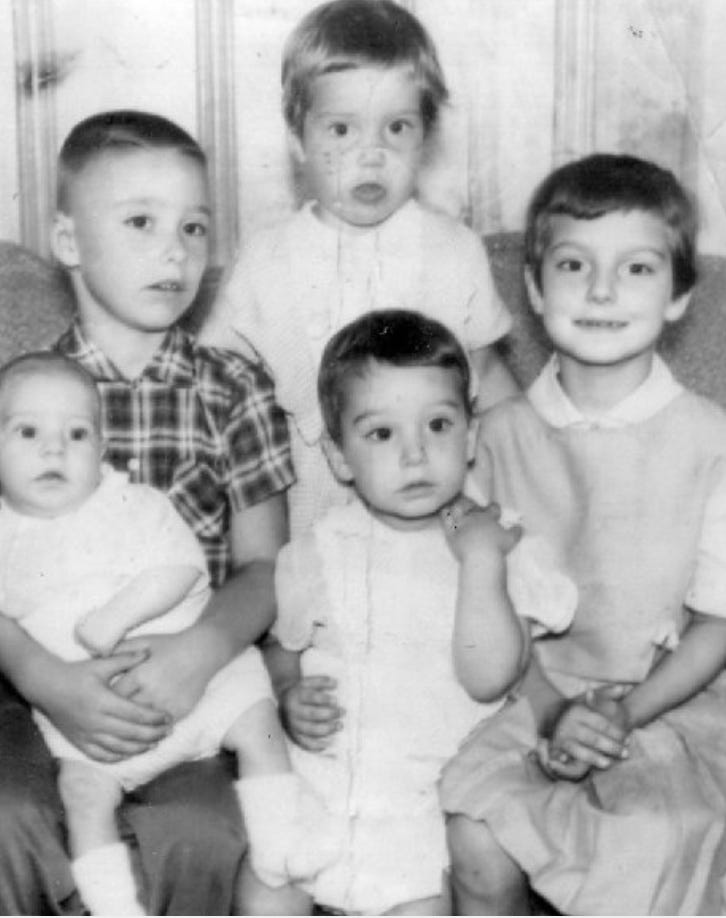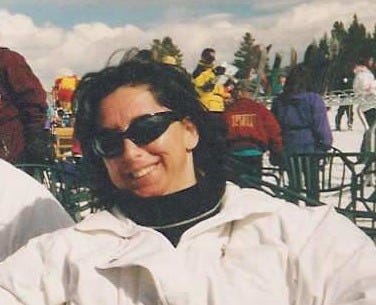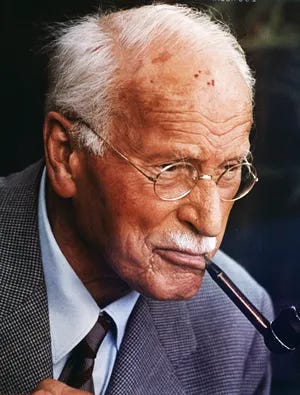Synchronicity at a time of loss makes one wonder

Some say there are no such things as coincidences. Instead, they are messages of a sort, pointing us toward some purpose or path.
For me, such pseudo-mystical notions are almost always poppycock. They’re up there in the Twilight Zone with crystals, Sedona vortexes and Tarot cards. But now that I am grieving the loss of a beloved sister and have been confronted with a few such coincidences, I wonder what I am to make of them.
Consider these episodes of what psychologist Carl Jung called “synchronicity:”
First, before she passed a couple weeks ago, my sister Madeline told me she was unafraid to die. Indeed, she badly wanted to end the suffering that cancer had inflicted on her and all of us who loved her. She said she wanted to just go to sleep, with the help of drugs, and not wake up.

That was tough for me and all of us to hear, of course. Very tough. I had to bite my tongue from saying, “But Madeline, none of us can bear you leaving.”
Still, in coincidence number one, a friend just handed me a powerful book about death, “The Beauty of What Remains” by Rabbi Steve Leder. “After more than thirty years, I have visited nearly a thousand dying people, and so far not one – not one single person who is really, actively dying – has told me he or she is afraid,” the rabbi writes. “A family sometimes asks me to visit with their dying loved one because they are afraid of life without them or they assume their loved one is panicked, but the agenda of the dying is not one of fear, it is one of peace.”
The ill people the rabbi dealt with didn’t want to cause pain to their survivors by departing, but they felt their time had come. And they were okay with that, just as Madeline was.
A second coincidence is my sitting here now, writing in a coffeeshop in Frisco, Colorado, with “Badlands” playing in the background. That song, of course, is a classic from Bruce Springsteen, and includes the lyric “Well, I believe in the love that you gave me/I believe in the faith that could save me/I believe in the hope/And I pray that someday/It may raise me above these/Badlands …”
Madeline, who lived not far from the Boss, was a devoted Springsteen fan, having seen more than 100 of his shows. All of us who are missing my sister are living in the badlands at the moment. We’re likely to be here for a long, long time, I expect.
But I ask you also to consider coincidence No. 3. Just today, the new issue of “The Atlantic” just arrived. It carries a long piece about assisted death in Canada. Euthanasia – or, as the Canadians call it, Medical Assistance in Dying or MAID – has been surging in the country ever since it was legalized in 2016. Today, it accounts for about one in 20 deaths in the country, with more than 60,000 MAID demises reported since legalization.
Can these three things be accidental? Can it be just coincidence that for the last several days, as friends and I marked Madeline’s passing by gathering in prayer, that I’ve told them about a) her enthusiasm for Springsteen and b) her lack of fear about dying, her wish to end her life on her terms?
After battling cancer for too many years, Madeline wanted only for the pain to end. But when she told a hospice nurse she wanted to just fall asleep — with the help of a lethal drug – she was told that was not legal in New Jersey. She could have pain medication, but nothing that would hasten her passing.
Sadly, then, my sister’s suffering lasted too many days longer than it should have because assisted death is under a legal cloud in New Jersey. That would not have been the case in Canada or in eight U.S. states where medically aided death is fully legal. While the Jersey legislature legalized the process in New Jersey in 2019, opponents have apparently put it on ice with a bill rendering it illegal. That bill is sitting in committee, vying with another that would make such a process easier. With such legislative confusion, it seems, my sister’s hospice nurses would not give her the option she wanted.
It’s hard to know why the two legislators behind the anti-euthanasia bill, Republicans Bob Auth and John DiMaio, oppose medically assisted dying because there is little in the press about their effort. But generally opponents fear the potential of abuse and coercion, particularly for vulnerable individuals including the elderly, disabled, or those lacking adequate access to healthcare. They don’t want to normalize suicide, as apparently the Canadians have.
Also, religions including Judaism and Catholicism, my sister’s devoutly held faith, oppose euthanasia. They hold that our bodies are divine gifts that we don’t have the right to eliminate. While some religious authorities permit the withholding of life-preserving treatment, they don’t allow for drugs that would end life.
But who should make the call here? If a person with a terminal disease wants to bring the suffering to an end, should he or she have the right to demand help for that? If such a person has made all his or her goodbyes and come to terms with the inevitability of their death, should outsiders nullify their choice?
And, if one believes that G-d chooses one’s time to pass, could it not be true that the moment of assisted death is the chosen time?
Some believe that assisted suicide amounts to murder, even if people taking their lives administer the fatal drugs themselves, albeit with others providing the toxins. But do those people have the right to, in effect, prolong another’s agony now that medicine has the ability to eliminate it?
I would have wanted much more time with Madeline, many more years, in fact. She was just 65, younger than three of us in the family.
I will long mourn her. I will also long remember the good times she gave all of us, the way Madeline – the middle child of seven of us — was an anchor for us. I will recall how she helped each of my siblings whenever and however they needed it. I will think fondly of her intelligent and compassionate politics, a subject of many a phone conversation between us, along with talk of family. And I will think fondly of our visits to one another, the too-few times our busy lives intersected.
I’m reminded of other lyrics in Springsteen’s song. He sings: “Badlands, you gotta live it everyday/Let the broken hearts stand/As the price you’ve gotta pay/Keep pushin’ ’til it’s understood/These badlands start treating us good.”
Madeline’s death broke the hearts of all of us, most of all her wonderful husband and three devoted sons, all of whom were with her in the final days. That heartbreak was inevitable as cancer took her away from us. But it shouldn’t have made her suffer even a minute longer than she would have wanted, the time she needed to make her farewells.

A final note on synchronicity, which fascinated Jung. He told of a famous case in which a beetle , a golden scarab, appears in a patient’s dream and then, just as she’s telling Jung about it, a similar bug taps on the window near them.
Could such a thing be accidental, one must wonder? Or was the universe telling Jung and his patient something? And, if so, what could that possibly be? Was it a reminder that not everything in our world can be rationally explained?
Rationalist as I am, I am nonetheless sure that not everything can be explained. But for Jung, the important thing about synchronicity was not that it appeared to be a blast of paranormality, something from the great beyond or the collective unconscious. Instead, what fascinated him was how people found meaning in coincidences, how what was going on within their minds or lives gave meaning to external things that seemed to echo those internal events.
I will long hear echoes of my beloved sister and that is a great comfort.
